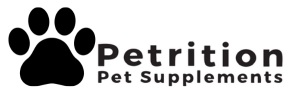As pet owners, we adore the sight of our dogs with gleaming smiles, but beyond the aesthetic appeal, proper dental care plays a pivotal role in supporting our furry friends' overall health and well-being. In this guide, we'll explore the importance of dental hygiene for dogs and share practical tips on how to keep those canine chompers in tip-top shape.
1. Daily Brushing Routine: Just as we brush our teeth to maintain oral health, dogs benefit greatly from a daily brushing routine. Use a dog-friendly toothbrush and toothpaste to gently scrub away plaque and prevent the buildup of tartar. Introduce the routine gradually, making it a positive experience for your dog.
2. Dental-Friendly Chews and Toys: Invest in dental chews and toys designed to promote oral health. These products often have textures that help to clean teeth and massage gums while providing a satisfying chewing experience. Always choose items appropriate for your dog's size and chewing habits.
3. Vet-Approved Dental Treats: Consider incorporating vet-approved dental treats into your dog's diet. These treats are formulated to support dental health by reducing plaque and tartar buildup. As with any treats, moderation is key to maintaining a balanced diet.
4. Regular Veterinary Check-ups: Schedule routine dental check-ups with your veterinarian. Professional dental cleanings are crucial for addressing any potential issues and maintaining optimal oral health. Your vet can also provide advice on at-home dental care tailored to your dog's specific needs.
5. Balanced Diet for Dental Health: Nutrition plays a significant role in dental health. Opt for high-quality dog food that supports overall well-being, including dental health. Some diets are specifically formulated to promote healthy teeth and gums.
6. Water Additives: Explore dental water additives that can be added to your dog's drinking water. These additives are designed to fight bacteria in the mouth, helping to keep teeth clean and breath fresh. Consult with your vet before introducing any new products.
7. Regular Inspections: Get into the habit of regularly inspecting your dog's mouth. Look for signs of dental issues such as bad breath, swollen gums, or discoloured teeth. Early detection allows for prompt intervention and prevents the progression of dental problems.
8. Avoid Harmful Habits: Discourage habits that can harm your dog's teeth, such as chewing on hard objects like rocks or bones that may splinter. Monitor their playtime to prevent accidental damage to their teeth.
9. Dental Wipes for Quick Cleaning: For dogs resistant to traditional brushing, dental wipes can be a convenient alternative. Gently wipe your dog's teeth and gums to remove plaque and maintain oral hygiene.
10. Be Mindful of Dental Emergencies: Keep an eye out for signs of dental emergencies, such as broken teeth or bleeding gums. If you notice anything unusual, seek prompt veterinary attention to address the issue before it escalates.
Caring for your dog's teeth is an integral part of responsible pet ownership. By incorporating these simple yet effective practices into your routine, you're not only ensuring a bright and healthy smile but also supporting your dog's overall health and happiness. Remember, a little effort in dental care goes a long way in enhancing the quality and longevity of your furry friend's life.

